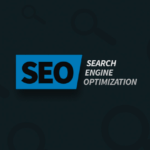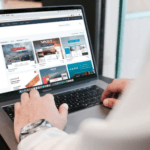If you have a website, you’ve probably heard that optimizing your website is vital to your site, your company or your brand. While you can learn all about optimization and try optimization on your own, many people opt to have a professional company such as Crafted NY website design agency optimize their websites for them.

These types of professionals know all the latest information about SEO, content, navigation and what needs to be done to a website to enhance a user’s experience. While hiring a company like Crafted NY website design Agency is a smart play, you may also want to try some things on your own.
If you are interested in optimizing your website on your own, there are some tips to follow to boost your site and the user’s experience while on your website.
What is Optimization?
Optimization is the short version of SEO, search engine optimization. This is exactly what it sounds like–optimizing your site so that is search engine friendly.
The basic definition is that SEO is the freeway to get your site listed at the top of search engine listings (as opposed to paying per click ads). Optimizing your website, in essence, is a cost-effective way to build your audience/client base.
How Can You Optimize Your Site?
Here are five tips that you can use to optimize your site.
1] Keywords
Keywords are probably one of the most important SEO tools you can use. You can use online keyword services to identify strong keywords. Once you’ve done that, they should be strategically placed on your site.
Be sure to list some of them in title tags, header tags, and even page URLs. However, don’t overdo it–you don’t want the search engine bot to flag your pages as spam.
2] Keep Adding New Content
You should constantly update or add new content to your site. This keeps the website fresh and interesting. It also helps your website’s rankings. Try to add or update content on a weekly basis.
3] Use Meta Tags
Skipping meta tags is like leaving traffic on the table. While Google’s bots don’t look at meta tag keywords, other search engines do. It’s easy to include meta tags with simple HTML, so make sure you fill out the meta keywords and meta description at the very least.
4] Pay Attention to Page Speed
Having a slow page speed can cause Google to tag your page as slow, which will hurt your chances of being listed at the top of search engine results. One great way to avoid slow page speeds is by avoiding a bunch of large files like photos or videos. There are online page speed tools that can help you figure out your page speed.
5] Make Sure You Have Quality Links That Work
Nobody likes a site with broken links. Neither do search engines. Check your links often and make sure they work and that they’re accurate. Also, try getting other quality websites to link to your site. The keyword here is quality. Don’t let a low-quality site drag you down.
Conclusion
Optimizing your website to enhance the user’s experience is vital to every company, business, or brand. Everything from using the right keywords to adding new content on a continuous basis will take your site to the next level and improve your rankings.
By remembering to pay attention to how quickly your site can be navigated and using high-quality links on your site, you will have a highly optimized website in no time.





